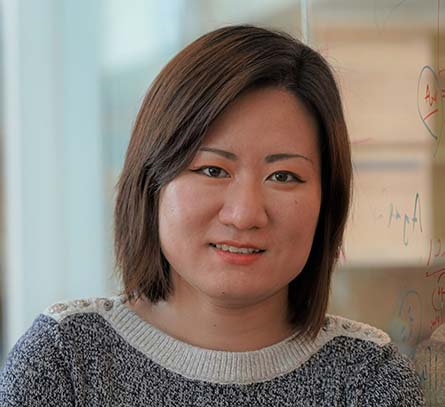
Niya Sa
Director of the FESEM Core Facility
Phone: 617.287.3249
Biography
Professor Niya Sa is an Associate Professor in the Department of Chemistry. She received her Ph.D. from the Analytical Chemistry (Electroanalytical Chemistry) program at Indiana University-Bloomington, where she worked with Professor Lane A. Baker on understanding fundamental ion transport phenomena in confined regime. She extended her training working as a postdoc research fellow at the Electrochemical Energy Storage Division at Argonne National Lab.
Area of Expertise
Electrochemistry, Analytical Chemistry, Energy Science
Degrees
Ph.D. Indiana University Bloomington
B.S. Lanzhou University
Professional Publications & Contributions
Publications from our group can be found on google scholar:
https://scholar.google.com/citations?user=hiDz5-gAAAAJ&hl=en
Additional Information
Professor Sa's research focus at Argonne was to develop beyond lithium-ion battery materials. She joined the University of Massachusetts in 2017 as an Assistant Professor, and her current research interests include probing the electrochemical interfaces for energy materials, development of new electrolytes for next-generation energy storage systems. Niya is a recipient of the NSF CAREER Award. She also received the Endowed Faculty Career Development Award, Joseph P. Healey Award, and the Early Career Research Excellence Award from University of Massachusetts.
The major focus of Professor Niya Sa's research group is to probe and elucidate in-operando chemical processes at the interfaces of high-performance, low-cost energy storage materials. Such fundamental research underpins the future development in battery technology. Specifically, we are trying to decipher the operational local chemistry environment at the electrode/electrolyte interface upon cycling with in-situ electrochemical techniques, for rechargeable Li and Mg ion batteries. The broad impacts of such research include promoting the adoption of electric vehicles (EV) to decrease the need for imported oil and gas, which requires understanding the limit of the rechargeable ion batteries and their degradation mechanisms. In addition, search for multivalent rechargeable ion batteries to make EVs more acceptable to consumers will benefit from these studies as well.
